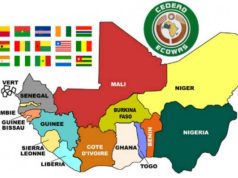Nigeria experienced a significant economic disruption on Monday as the Nigeria Labour Congress (NLC) and Trade Union Congress (TUC) launched a nationwide strike. The strike, triggered by a disagreement with the Federal Government over the new minimum wage and electricity tariff, resulted in the shutdown of key sectors, including power, banking, ports, hospitals, schools, and government offices.
The labor unions, which represent millions of workers, had previously issued an ultimatum demanding a minimum wage increase from the proposed N60,000 and a reversal of the electricity tariff from N206/kWh to N65/kWh. The government’s failure to meet these demands led to the indefinite strike commencing on Monday.
The impact of the strike was immediate and widespread. The National Union of Electricity Employees (NUEE), a key participant in the strike, shut down the national grid, plunging the nation into darkness. The Transmission Company of Nigeria reported that its workers were forced to comply with the industrial action, resulting in the complete halt of power generation.
Banking services were also severely disrupted, with many banks across the country operating on a skeletal basis and union leaders picketing bank headquarters in Lagos. The Maritime Workers Union of Nigeria joined the strike, causing significant delays at the nation’s ports as workers were denied access.
Healthcare services were not spared either, as workers at the Lagos State Teaching Hospital withdrew their services, leaving patients unattended. Aviation unions also joined the strike, leading to the suspension of flights by several airlines and the closure of domestic terminals at airports.
The NLC and TUC have stated that the strike will continue until their demands are met. They are urging the government to consider the rising cost of living and the impact of the recent electricity tariff increase on workers’ livelihoods.
The government has yet to respond formally to the strike, but the economic impact is already being felt across the country. The situation remains fluid, and Nigerians are anxiously awaiting a resolution to the ongoing labor dispute.

























